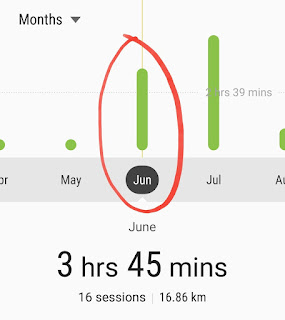Assignment 1 Big Data and Data Analytics
Big data implementation
in the banking industries
· Objective
The financial industry is one of the most data driven of industries. At the
end of 2012. It was estimated that financial and securities organisation were
managing 3.8 petabytes of data per firm. Data sets have grown immensely in terms
of size, type and complexity and are difficult to work on using traditional
database management tools. Many large financial and banking institution are
reaching the upper limits of their legacy system and are now seeking fresh
analytics and framework solution
· Problems
Regulators are demanding greater transparency, customers want a more
relevant and personalized experience, and CEOs are looking for sustainable
growth opportunities. A common thread in all of these issues is data. Big data.
What is big data? Forrester puts it succinctly in saying “big data encompasses
techniques and technologies that make capturing value from data at an extreme
scale economical”.
· Solution
Big data is all about liberating information from variable sources and
formats, which is large in volume and broad in variety, in order to become more
efficient and gain valuable insight to maximize opportunities. The keyword is
‘value’. Technology silos and ever-expanding amounts of data make effective
data management a massive challenge. Banks have an abundance of data, but few
are able to know their customers by analysing that data. For some banks their
survival depends on it, for others that can indeed capture value, it extends
their capabilities to a more sophisticated level of risk management, marketing
optimization, and sales efficiency, which in turn gives them an advantage over
their competitors.
· Methodology
Big Data technology has four key aspects Infrastructure Data Storage
Data Processing and Management, and Data Analytics
Infrastructure: The key to big data infrastructure
is scalability and flexibility to handle petabytes of data, so the cloud
becomes a natural choice
Data Storage: Traditional, legacy systems and
methods of storage are sub- optimal due to price and scalability restrictions.
New methods of storage, particularly NoSQL and DFS (Distributed File System)
represent the paradigm shift in the storage arena.
Data Processing and Management: This framework is used for
processing a growing mass of data in parallel.
Data Analytics: This is the area which provides
visualisation and predictive analytics.
· Measurement
Retail banking cases
As with many large banks that have had to go through acquisitions that
further muddle traditionally siloed banking operations, A large US retail bank
faced the challenge of aggregating all available information about a single
customer. Information about checking accounts, mortgages and wealth management
for the same individual were stored in different information management
systems, preventing it from leveraging analytic capabilities that could have
helped account representatives provide customers with better service and
understand cross-sell opportunities. Banks will also be able to offer lower
interest rates by utilising Big Data to reduce credit card fraud risks, thereby
reducing overheads
Corporate banking use cases
JP Morgan Chase generates a vast amount of credit card information and other
transactional data about its US-based customers. Along with publicly-available
economic statistics from the US government, JPMorgan Chase uses new analytic
capabilities to develop proprietary insights into consumer trends, and in turn
offers those reports to the bank’s clients. The Big Data analytic technology
has allowed the bank to break down the consumer market into smaller segments,
even into single individuals, and for reports to be generated in second
Citi, for its part, is also experimenting with new ways of offering
commercial customers transaction data aggregated from its global customer base,
which can be used to identify new trade patterns. The data could, for example, reveal
indicators of what might be the next big cities in the emerging markets. According
to an executive, who manages internal operations and technology at Citi, the
bank shared such information with a large Spanish clothing company, which was
able to determine where to open a new manufacturing facility and several new
outlets
Another set of data analytics currently used by the Bank is the matching
algorithm, which enables the business to gain greater visibility on its performance.
Other data analytic abilities include profiling of data to identify abnormal
information through rule-based algorithms, or “teaching” a machine what is
abnormal and normal so it can quickly flag errors and minimise false positives,
which is mainly applied in activity monitoring and anti-money laundering
processes.. In terms of reporting capabilities, reports can now be generated
from the data source itself, where the data is stored without having to create
dedicated reporting systems.
· Accuracy
Overall, 62% of banks believe that managing and analysing big data is
critical to their success. However, only 29% report that they are currently
extracting enough commercial value from data. This means there is significant
upside, and it may be some time before Big Data becomes part of the standard business
dynamic. The technical key to successful usage of Big Data and digitisation of
business processes is the ability of the organisation to collect and process
all the required data, and to inject this data into its business processes in
real-time - or more accurately, in right-time.
Therefore, rather than jump into Big Data blindly, a more pragmatic
approach would be to test the water first, prioritise investments and use this
process to determine how prepared the
organisation is for a Big Data transformation, as well as how fast and how deep
it can go. Ask the right questions, focus on business problems and, above all,
consider multiple insights to avoid any Big Data traps or pitfalls.

REFFERENCES
REFFERENCES
- httpn://onetree-solutions.com/big-data-in-the-banking-sector
- http://spotfire.tibco.com/blog/?p=12860
- http://www.marketresearchreports.biz/sample/sample/20704


Komentar
Posting Komentar